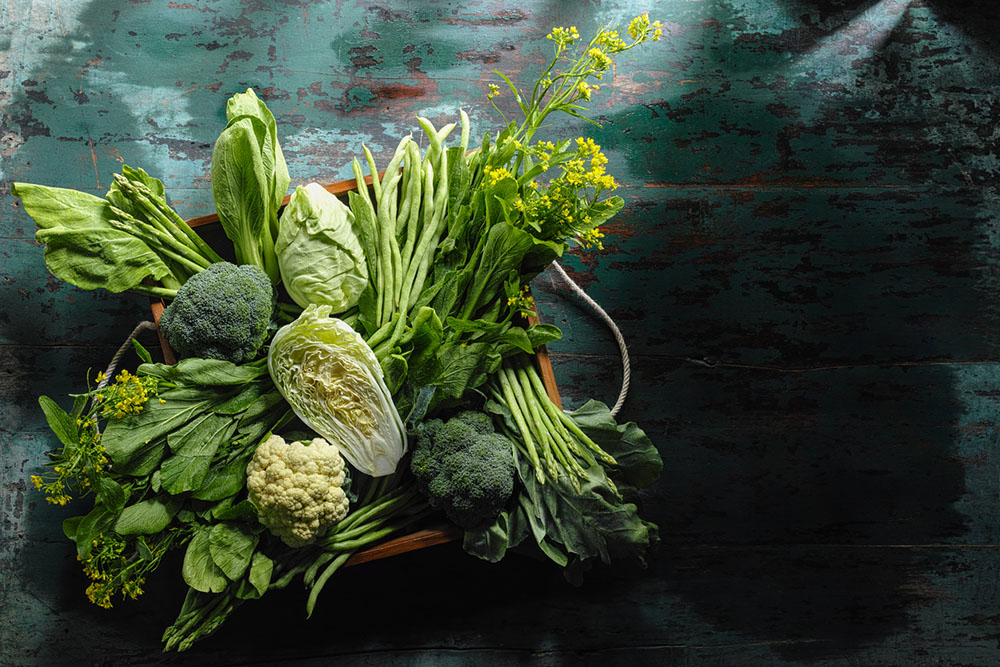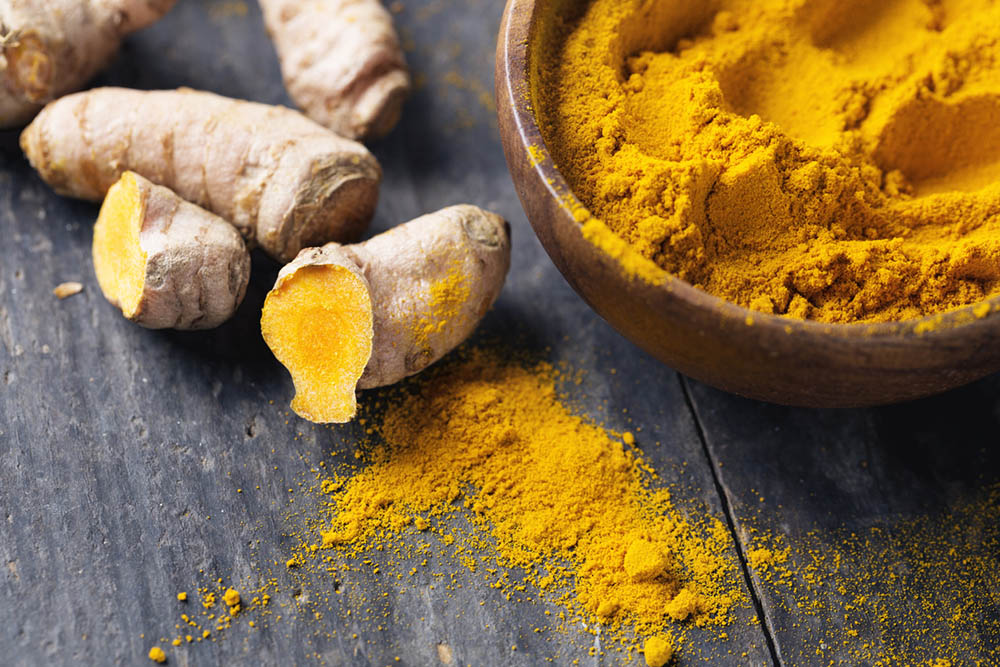Got eczema? Certain foods can help lower the inflammatory response that triggers dry, itchy, and flaky skin, says nutritionist Olga Hamilton
Often a chronic, long term inflammatory skin condition like eczema can leave the skin dry, itchy and sore. The national eczema society estimate that one in five children and one in 12 adults suffer from eczema in the UK.
Your diet may not be the cause of eczema but eating certain foods can trigger it and cause flare ups.
Research has found that dietary factors can indeed exacerbate eczema with reactions occurring within minutes or hours of food exposure.
Nutritionist Olga Hamilton breaks down five ways in which you can ease your eczema through your diet.
#1 Probiotics
Probiotics are live microorganisms that can aid your immune system and inhibit the growth of harmful bacteria in your gut, helping keep it healthy.
There are many different types of probiotics: Lactobacillus and Bifidobacterium are the most common strains and probably those with the most research on gut health.
Reseach shows that an enhanced presence of probiotic bacteria in your intestines has been found to correlate with protection against atopic dermatitis (eczema).
Probiotics are ‘good’ bacteria that can ease eczema by protecting you against immune dysfunction and reducing inflammation, which are two key causes of eczema.

Lactobacillus and bifidobacterium bacteria are typically found in yoghurt, water-based kefir, raw cheese; fermented soya products such as natto, tempeh and miso; fermented tea Kombucha, fermented vegetables such as sauerkraut and kimchi.
Start adding a small amount every day and try to consume a variety of fermented foods throughout the week.
So, try adding a tablespoon of sauerkraut to your salad, have 200 grams of yoghurt for your breakfast or snack. Or grab a water kefir or kombucha between meals.
#2 Prebiotics
Stomach acid is very strong and kills a large amount of the good bacteria that you consume every day. Prebiotics act as a fertilizer that feed the good colon bacteria so that they can grow in numbers.
Prebiotics are carbohydrates that your body can not digest. Instead the undigested carbs go through your small intestine and feed the probiotic bacteria which helps to increase the number of ‘good’ bacteria in your gut.
The Department of Gastroenterology at Monash University, Melbourne describe the health benefits attributed to prebiotic intake to include protection against intestinal infections and improvements in the progress of some inflammatory conditions, including eczema.
You can get prebiotic fibres through beans and legumes, Jerusalem artichokes, leeks, shallots, chicory, asparagus, mushrooms, garlic and onion are excellent sources.

Probiotics can work without prebiotics, but probiotics make them more effective and resistant against our stomach acid.
Aim to include three portions of any of these vegetables per day. One portion is 80g weight for vegetables and 120g of cooked legumes.
#3 Cruciferous vegetables
A driving factor when it comes to eczema is poor liver function. Your liver is responsible for filtering the blood coming from the digestive tract, before passing it to the rest of the body.
However, when the liver is overloaded with toxins and inflammatory by products from food allergies it is not as effective as if it could be.
When we can’t process environmental or dietary toxins through our liver, it must be eliminated from our bodies by other means, usually through the skin.
This build-up of toxins in your body can cause inflammation, which can manifest into eczema.
Research has found that patients with atopic dermatitis (eczema) showed abnormal liver function and found the relationship between food and eczema to be a growing problem in young children.
To reverse this and reduce your exposure to irritating chemicals include more foods in your diet that are gentle on your liver, such as cruciferous vegetables.

Cruciferous vegetables contain glutathione which maintain the body’s normal inflammatory response, a ‘leaky’ gut allows toxins and bacteria to ‘leak’ through the intestinal wall and pass into the bloodstream and create aggravation and inflammation.
Consuming cruciferous vegetables helps the liver to produce detoxifying enzymes and thus allows your liver to function optimally, rebalancing your digestive system and reducing inflammation that can lead to eczema.
Dark green cruciferous veggies also are an excellent source of folates and vitamin K, E, and chlorophyll, that reduces inflammation and bacterial growth. A study found that chlorophyll can reduce liver damage.
Cruciferous vegetables include all different types of cabbage: white, green, Chinese, Savoy, red, kale, pak choi, turnip, broccoli, cauliflower, brussels sprouts.
Aim to include two portions of cruciferous vegetables every day in any shape or form: cooked, raw, tinned, frozen, backed, stewed or roasted – all count.
#4 Turmeric
Turmeric is a spice commonly used in Asian food. It has a warm, bitter taste and is frequently used to flavour or colour curry powders, mustards, butters, and cheeses.

This super spice has a long history of medicinal use in Ayurvedic medicine, a system of medicine with historical roots in India.
Research has found that curcumin restores depleted levels of glutathione which is an antioxidant that helps to strengthen your immune system and help autoimmune disorders, including eczema.
The spice contains curcumin, a naturally occurring active ingredient, that has anti-inflammatory and antioxidant properties which has been used to treat eczema.
A study found that combination herbal extract cream containing turmeric showed significant reduction in symptoms and alleviated scaling, thickening, and itching in patients affected by eczema.
#5 Vitamin D
Vitamin D plays an important role with a number of health benefits that affect several systems throughout your body.
It’s produced in the skin as a form of cholesterol in response to sun exposure and can also be found in foods like wild oily fish, vitamin D enriched mushrooms, and grass-fed cow’s butter.
A study published in theJournal of Allegery and Clinical Immunology found that when compared with participants who had adequate vitamin D levels, participants diagnosed with eczema had significantly lower levels of vitamin D.
This is because vitamin D is an immunomodulator, which simply means it helps the immune system function properly.
Research published in 2018 found that vitamin D plays an important role in reducing inflammation by regulating the production of inflammatory cytokines and immune cells, which are beneficial in the prevention of many immune-related diseases (eczema).
Vitamin D deficiency is incredibly common. According to national surveys in the UK, across the population approximately one in five people have low vitamin D levels.
The reason for this may be that symptoms of vitamin D deficiency are subtle so you may find it difficult to know if symptoms are caused by deficiency or something else.
Sign and symptoms of vitamin D deficiency are:
- Fatigue or tired
- Bone pain
- Joint pain
- Muscle pain
- Low energy
- Anxiety
Relevant Healthista content:
The beauty diet – 5 ways to eat for acne
The beauty diet – 5 ways to eat for glowing skin
Could the new collagen diet help you lose weight and get glowing skin?
11 diet and fitness rules Jennifer Lopez lives by
Other Healthista content you may like:
9 natural insomnia remedies to help you sleep better tonight
How to be charismatic – 7 steps to becoming your most confident self
Tweakments – the anti-ageing treatments no one will ever guess you’ve had
Feeling stressed? This 5 minute meditation will help
Like this article? Sign up to our newsletter to get more articles like this delivered straight to your inbox.






















































